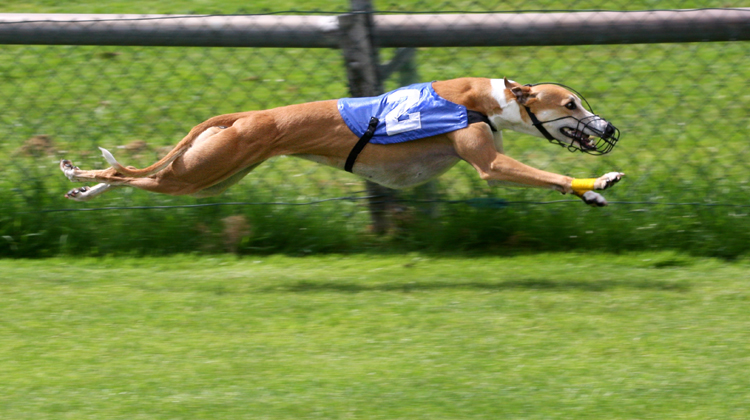A practice that breeches racing rules exports hundreds of Australian greyhounds, determined by their owners and trainers to be to too slow for Australian racing, to Asia where they languish in deplorable conditions.
Due to the greyhound regulator’s concern for the welfare of the dogs, for almost a decade it has lobbied the Federal Government to put an end to the trade. Those efforts, however, have been unsuccessful.
Dozens of Australian owners and trainers, who have exported their Greyhounds to Asia, have been identified through evidence gathered by Animals Australia in Macau, China and Vietnam, along with an ABC 7.30’s six-month investigation, according to an investigative article by ABC’s 7.30 Report. The exportation of greyhounds is not illegal. However, exporting them without the required passport is not in keeping with the rules of racing, and can result in fines and disqualification from the sport.
Lyn White, campaign director for Animals Australia, said “The conditions are awful, it’s prison-like, barren cells, and in fact it really is like being exported to another country and put on death row.”
According to the 7.30 report, at the former Portuguese colony’s broken-down track known as the Canidrome, Australian dogs are racing 24 hours a day, regularly sustain injuries, and are euthanized at a 100 percent rate. The greyhounds are flown to Hong Kong and ferried to Macau. Once there, they are locked inside the Canidrome facility which houses as many as 800 dogs, and races them on a track that is too hard. The facility receives up to 30 Australian greyhounds in monthly shipments, which helps replace the dogs that underperform and are euthanized regularly. It was also discovered that unknown Asian investors were auctioned other greyhounds at over-inflated prices.
In 2012 an adoption program for unwanted dogs began at the Canidrome track, but animal activists in Macau say that only four greyhounds have been saved. Albano Martins runs Anima, Macau’s leading animal welfare group, he says that dogs at the Canidrome are unprotected by animal welfare laws and the adoption program at the facility is a sham. Martin too has written the Australian consulate in attempts at ending the export of Australian animals to Macau. Martin said there is no chance of adoption for the greyhounds.
The Federal Government and Agriculture Minister Barnaby Joyce have both been repeatedly lobbied by Animals Australia and Greyhounds Australia (GA) to legislate against the trade, but no action has been taken by the Minister. A spokesman for Joyce said in a statement to 7.30 that the Government did not believe that the adoption of the regulators system of greyhound passports would affect animal welfare.
Last month the Canidrome’s contract was renewed for one year by the government of Macau.



